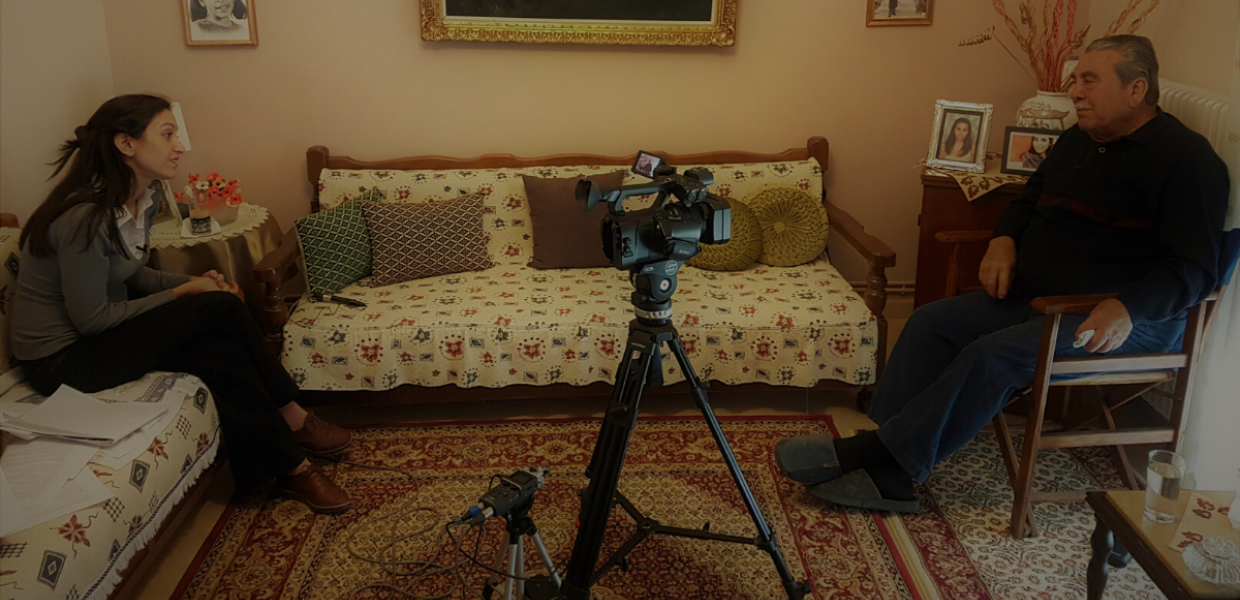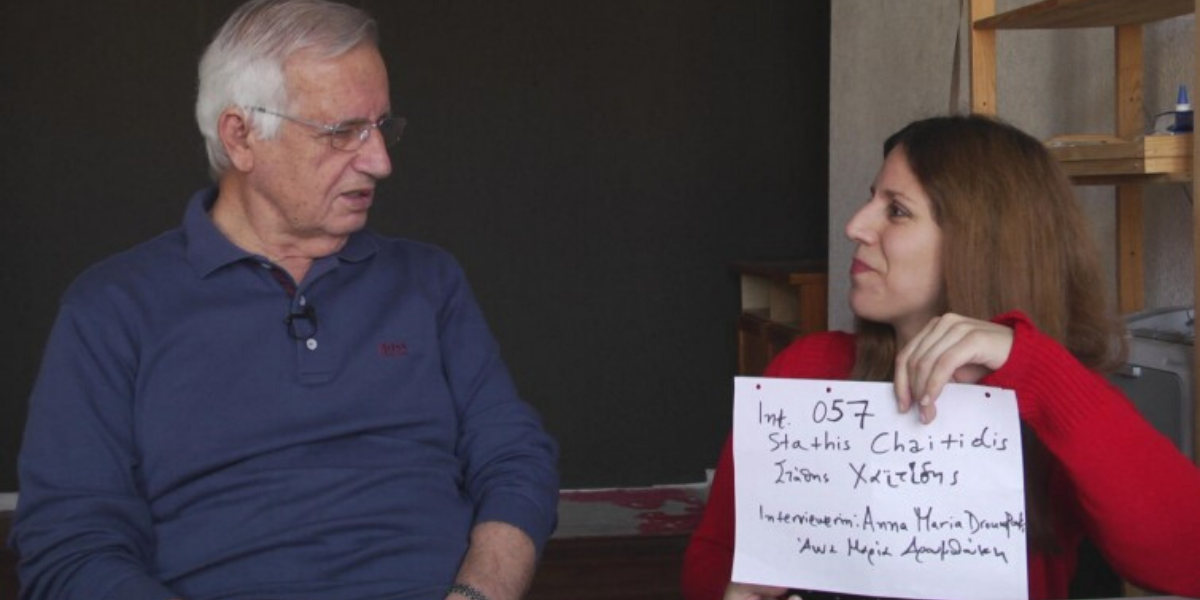The project stimulates reflection on the role played by cultural heritage in recalling memories and on the potential of oral history for research. In this post, Agiatis Benardou interviews Anna Maria Droumpouki, a historian at Freie Universität Berlin, and scientific co-ordinator of the project, on the challenges of designing interviews to collect testimonies, the experience itself of collecting them, and the implications of making them available online.
Memories of Occupation in Greece is a project supported by the German Ministry of Foreign Affairs, the Stavros Niarchos Foundation, the Erinnerung, Verantwortung und Zukunft Foundation and Freie Universität Berlin. The project collected and archived audiovisual testimonies on the German occupation of Greece (1941-44). To this end, a total of 93 interviews were conducted in Greece with witnesses of the period, including members of resistance organisations, hidden children, Jewish Shoah survivors, prisoners of concentration camps, witnesses to retaliation, and other individuals who experienced the painful period in various ways. The interviews were digitised and made accessible in a trilingual web portal and are available for research, educational and training purposes.
What was the methodology you employed while designing and organising the interviews with the survivors?
The interviewers follow the biographical-narrative method as described by Dr Alexander von Plato (an internationally recognised authority on oral history and one of Germany’s leading oral historians). The interviewees have the opportunity to tell the story of their whole life without interruptions, setting their own priorities and following an associative or chronological structure as they deem appropriate. This is done in the first (open) stage of the interview, which is introduced with the general question: ‘Could you please tell us the story of your life?’
Although the primary research interest of the project ‘Memories of the Occupation of Greece’ is the time of the occupation, the interviews that are conducted cover the entire life of the contemporary witnesses. This decision to conduct biographical interviews was made because of the importance of the subject’s character and story prior to the occupation for understanding their behavior and actions during the occupation. Memories of the time after the occupation are important, as the experience has an effect on the entire life of the individual.
Can you describe briefly how the interviews were carried out?
The interviewers prepare themselves thoroughly for the interview. They possess an extensive knowledge of the German occupation of Greece and have been informed about the particular circumstances of the person to be interviewed, allowing them to comprehend each individual life story in its complexity. Furthermore, the interviewers prepare questions to assist in understanding the biography of each individual and the events that occurred during the occupation. As a matter of principle, the interviews are conducted with respect and empathy.
Photos, documents or artifacts are examined together in order to bring back memories. After the interview, the interviewer completes a short biography and an interview protocol with a description of the interview situation. The interview subject receives a written copy of the interview.


